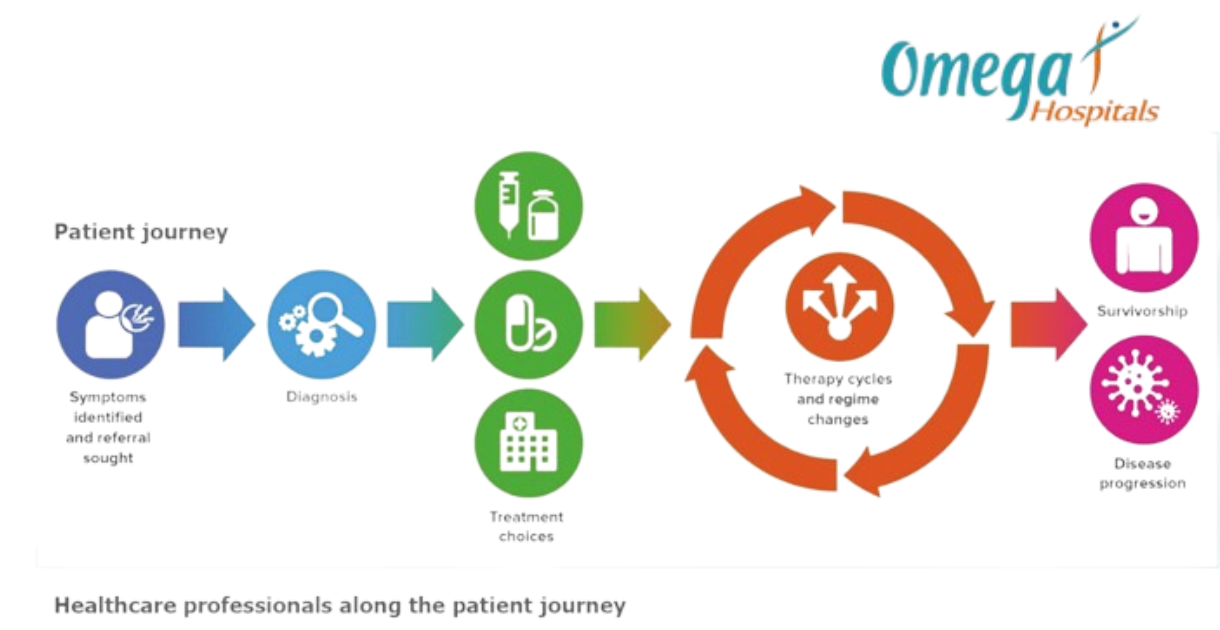Onset of Symptoms: Patients may experience certain health issues, such as pain, discomfort, fatigue, changes in bodily functions, unusual sensations, and unexplained and sudden weight loss; they decide to consult their general physician for a health check-up.
Seeking Medical Help: The physician prescribes regular medications for a few days. In the 2nd review, if there’s no improvement in the patient’s health, the physician will recommend specific tests like blood and imaging to diagnose the health problem correctly. If the reports are abnormal or suspicious of cancer, the patient is referred to the oncologist for further evaluation and treatment.
Diagnosis including staging evaluation: The oncologist studies the existing reports and may opt for a biopsy to understand more about the lesion/tumour, following up with staging work, which might include PET-CT/PET MRI scan (or other oncology-related tests such as mammogram, bone scans, etc.)
Psychological and Emotional Assistance: Patients & their families receive counselling to address their medical condition’s psychological and emotional effects. It includes various treatment options and what they can expect from the treatment in terms of outcomes and side effects. In a patient’s path to recovery, the assistance of friends and family is important.
Treatment Planning: Multi-disciplinary Tumour Board (MTD), which includes surgical, medical, and radiation oncologists, pathologists, radiologists, and nuclear medicine physicians, will discuss individual patient’s conditions and arrive at a treatment plan. Following a discussion of the plan with the patient and their family, the treatment plan will start.
Depending on the type of tumour, various modalities, including surgery, chemotherapy, radiation therapy, hormonal therapy, targeted therapy, and immunotherapy, might be used as per treatment guidelines.
Monitoring and Follow-up:
During hospitalisation: Patients are regularly monitored during their hospital stay. It comprises routine diagnostic testing, management of side effects, regular medical evaluations, and nutritional assistance. Psychological support services are offered to help patients manage the emotional toll of treatment, and continuous evaluation of the patient’s overall health is done.
After hospitalisation: Patients attend follow-up visits so that the doctor can monitor their progress and, if needed, modify their treatment plan. Regular tests, examination, or imaging are necessary to continuously monitor the progress of the treatment and assess its effectiveness.
Follow-up visits are more frequent in the first 2 years (once in 3 months) and from year 3-5, once in 6 months, followed by annually thereafter. This is essential to detect recurrences earlier when there might be a chance for a cure.
Prevention and Education: Patients are taught about the causes of their illness, effective management techniques, and the condition itself. The patients are educated about preventive measures and lifestyle changes, such as dietary plans, regular physical exercises, and mental health care, to minimise the risk of recurrence or complications and lead a healthy, stress-free life.

